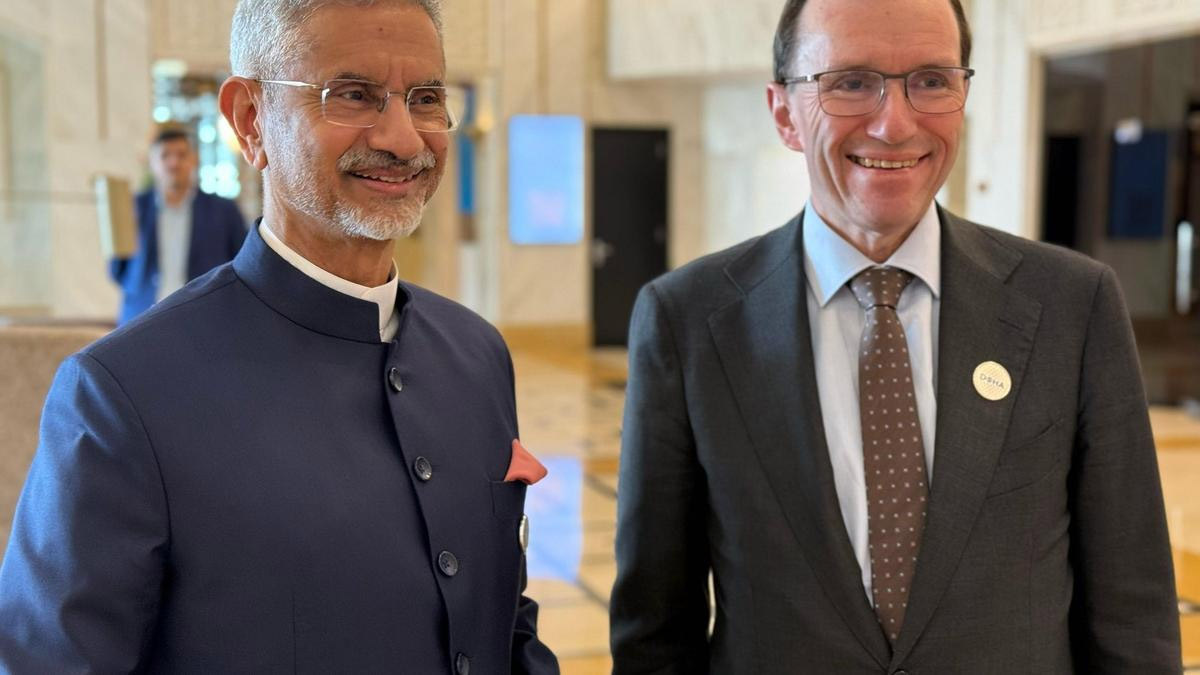DOHA (QATAR), Dec 7: On Saturday, December 7, 2024, External Affairs Minister S. Jaishankar emphasized the need for “more innovative and participatory diplomacy,” noting that discussions are shifting towards negotiations rather than the ongoing conflict in Russia and Ukraine.
Mr. Jaishankar pointed out the rising expenses related to oil, fertilizers, and shipping, impacting various nations, including India, due to regional conflicts in the Gulf and the Mediterranean.
He is in Doha at the invitation of the Prime Minister and Minister of Foreign Affairs of Qatar, Mohammed bin Abdulrahman, for the Doha Forum. During a panel discussion that included the Qatari Prime Minister and Norway’s Foreign Minister Espen Barth Eide, he shared his insights.
Mr. Jaishankar remarked that diplomats must acknowledge the chaotic nature of current global affairs. “It’s a messy world filled with conflicts; thus, it is essential for the global diplomatic community to step up,” he stated.
He also noted that the era where the UN Security Council or a few Western powers managed conflicts is “in the past,” urging all nations to take an active role.
“There is a pressing need for more vigorous, innovative, and participative diplomacy, with more countries willing to be bold enough to act independently of the West,” said the former diplomat-turned-minister.
In response to a query about India’s stance in the Russia-Ukraine conflict, Mr. Jaishankar conveyed, “Discussions are increasingly leaning towards negotiations instead of a prolonged war.” He elaborated on India’s efforts, detailing visits to Moscow for talks with President Vladimir Putin and to Kyiv engaging with President Volodymyr Zelenskyy to convey mutual messages. India seeks to identify “common threads” for future dialogue.
Moreover, he highlighted India’s representation of the sentiments and interests of the Global South, which includes 125 nations affected by rising fuel, food, and inflation costs due to the conflict.
“Recently, significant European leaders have expressed their desire for us to keep engaging with both Russia and Ukraine. We believe the situation is progressively moving in that direction,” he added.
Mr. Jaishankar also touched upon interactions regarding Prime Minister Narendra Modi and U.S. president-elect Donald Trump.
Commenting on Trump’s warnings to BRICS nations concerning potential 100% tariffs for advancing a BRICS currency, Jaishankar remarked, “I cannot pinpoint the exact trigger, but India has always supported the current dollar system. Presently, there is no proposal for a BRICS currency.” He further explained that BRICS countries hold diverse views on this issue.
When asked if India has a role amid the formation of an anti-American coalition involving Russia, China, North Korea, and Iran, Jaishankar responded: “Every nation has its unique interests; they may share some commonalities or diverge on others. Often, these countries collaborate in different combinations on various topics.” “The reality is much more nuanced and complex,” he stated during the panel session at the 22nd Doha Forum, which emphasized ‘The Innovation Imperative.’ According to its website, Doha Forum serves as a global dialogue platform, uniting policy leaders to deliberate on significant world challenges and forge innovative, action-oriented networks.
Under the theme ‘Diplomacy, Dialogue, Diversity,’ the forum encourages the exchange of ideas and policy-making discussions towards actionable recommendations.
“In an era where borders are increasingly fluid, our challenges and solutions are interconnected,” reads the forum’s homepage. (Agencies)


Leave a Reply